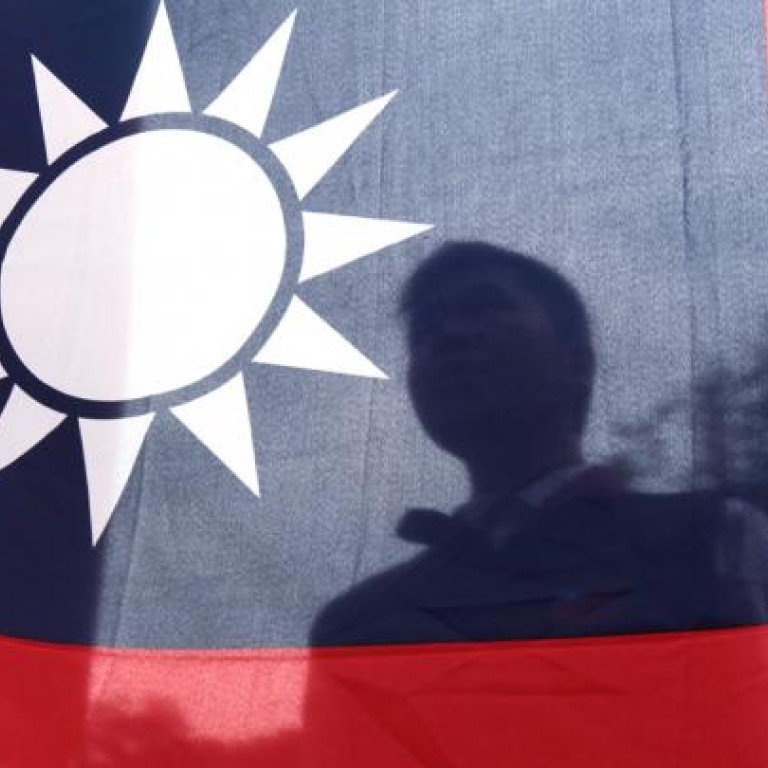
Taiwan media shake-up gets its wires crossed
The axing of the information service agency has left non-local media dependent on poor service from the ministries that have taken over
Taiwan's Government Information Office (GIO), formerly the island's top publicity organ, faded into history nine months ago along with its widely praised media services function, which the diplomatically isolated island used to raise its profile.
After operating for 65 years, the GIO was abolished on May 20, the day Taiwanese president Ma Ying-jeou began his second four-year term. It was axed as part of a restructuring project aimed at streamlining government departments, reducing duplication and saving money. Its three major functions were handed over to other government departments, with international publicity matters going to the foreign ministry, domestic publicity issues going to the cabinet's information department, and responsibility for its film and publications business going to the culture ministry.
But since the GIO was closed, those bodies have struggled to take care of some of its functions, with media services for non-local news outlets inferior to those provided by the GIO.
"Cutting the GIO only makes things even worse - Chaos No 1: foreign media outlets now become orphans," a headline in the Taipei-based read on November 17. The article listed the growing complaints by non-local journalists about inadequate liaison from the foreign ministry's international information department.
Cutting the GIO only makes things even worse - Chaos No 1: foreign media outlets now become orphans
One example it quoted was a visit to Pengjia Islet, near the disputed Diaoyu Islands in the East China Sea, on September 7. Ma had hoped the trip would draw international attention to Taiwan's sovereignty claim to the Diaoyus, offer a way to ease tensions in the region, and lead to joint exploration for oil and fishery resources - something he called the East China Sea Peace Initiative. Tensions between Japan and the mainland, which also claim the Diaoyus, have been on the rise.
The trip would have brought good international publicity for Taiwan were it not for the lack of liaison between the foreign ministry and non-local media. Because of the short notice, journalists from many non-local media outlets stationed in Taiwan were unable to make it to the trip, the paper reported.
The received a call from the department, inviting it to cover the excursion, less than 30 minutes before the vessel heading to Pengjia was to leave Keelung, about a 30-minute drive from Taipei. It made on-the-spot coverage impossible.
The department later explained that it had received a last-minute notice from the Presidential Office to invite non-local media to cover the trip.
Another target of criticism was the confusion over the classification of media outlets. The GIO had dealt with all media outlets - foreign, overseas (including Hong Kong, Macau and the mainland) and local - but after it was axed, services for foreign media were handled by the foreign ministry, those for the mainland went to the culture ministry and the cabinet's information department took care of local media.
Hong Kong and Macau media outlets became orphans - not classified as foreign media by the foreign ministry or mainland media by the culture ministry.
Only recently was the culture ministry finally charged with dealing with Hong Kong and Macau media outlets, with one culture ministry official telling the that media services would soon be available for Hong Kong and Macau media.
However, being placed in the same category as the mainland media deprives Hong Kong and Macau outlets of the chance to cover military exercises up close. It also reflects discrepancy in the island's "freedom of the press", which appears to be selective.
I had to protest to the defence ministry over its barring of Hong Kong and Macau media from a reporting trip to the former defensive outpost of Matsu arranged by the foreign ministry's international information department in June. One defence ministry official said that although the two sides had improved relations in the past five years, the mainland technically remained an enemy of Taiwan and Hong Kong and Macau were both mainland territories, even though Taiwan's Mainland Affairs Council had defined the two territories as the Hong Kong and Macau areas in order to differentiate them from the mainland. The protest resulted in the department cancelling the trip.
"Things like this would have never happened if GIO still existed," a former GIO official said, adding that it had been experienced in arranging such trips for local and non-local media.
Known for 40 years for its control of the local media and for censoring anything deemed inappropriate by the authorities, the GIO had nevertheless become a friend of the media in its last 25 years. Its successors have a lot of ground to make up.

